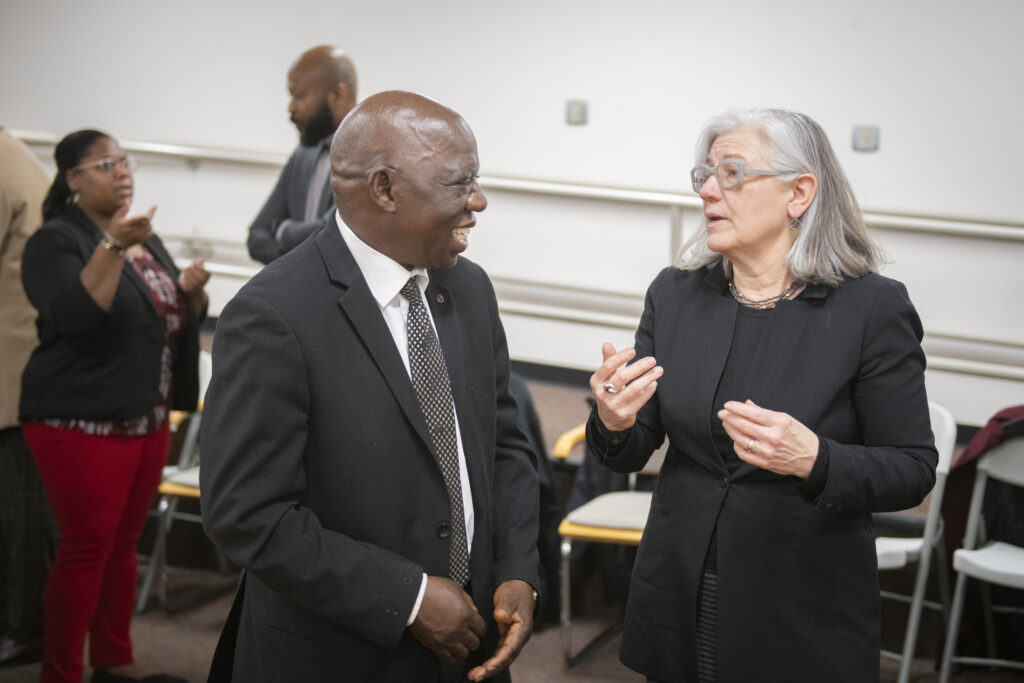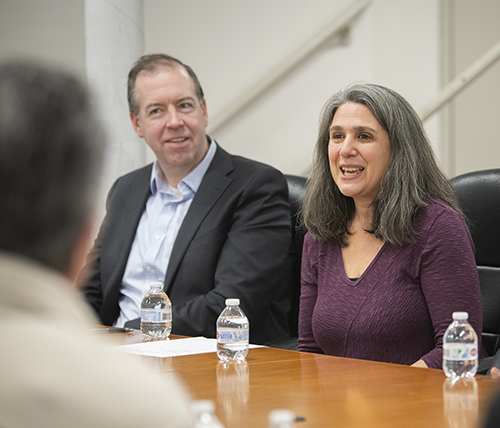‘We want to build this to strengthen people’

Clark University has signed a partnership agreement with African Community Education (ACE), a Worcester agency that works to help African refugee and immigrant youth and families achieve educational and social stability.
The agreement formalizes the already close relationship between Clark and ACE, which employs several Clark alumni. Faculty and students frequently collaborate with ACE on research projects.

“This collaboration reflects our university’s commitment to community engagement and promises to offer transformative opportunities for internships, research, joint educational programs, and campus visits for college-bound youth and their families,” said Professor Laurie Ross, interim dean of the college and director of the Department of Sustainability and Social Justice. “It’s a meaningful step in fostering ethical partnerships and enriching both our students’ learning experiences and the Worcester community.”
“Clark is not a stranger to us, and we are not a stranger to Clark,” ACE Executive Director Kaska Yawo, known affectionately as “Uncle Kaska,” said. “We want to make sure we build this to strengthen people. It’s all about helping people that are in need. We can help them to reach their potential.”
In December, students in Professor Anita Fabos’s Culture of Exile course held their final class session at the ACE Center on Gage Street, where they presented the culmination of a series of semester-long research projects involving the foods of local Haitian and African immigrant communities.
The presentations were widely varied, focusing on ingredient availability, urban farming, and Haitian foodways, and provided interactive maps, recipe videos, and vegetables and fruits to community members as a way to strengthen Haitian and African cultural ties to foods from their homelands. The themes of food security, food habits, identity, and cultural accuracy were central to the projects.
The first of the three presentations was given by Faith Bolques ’24, M.A. ’25, Keasha Buchar ’25, Maxwell Silva ’28, Riley Schmidt ’26, and doctoral student Md Khalid Rahman.
For their project, they recorded videos of individuals cooking recipes from their homelands. Dishes included soup joumou (Haitian pumpkin soup), foufou (a West African dish commonly made with yams or plantains), and couscous beef stew with okra. The group stressed the importance of presenting information in the cooks’ native languages while noting that “food plays an immense role in the lives of immigrants.”
The second presentation, given by Alyssa Martinez ’26, Katie Jones ’25, Devon Kevetos ’24, Logan Bullock ’26, and Maddie Dillon ’26, detailed the process of creating a community herb garden that would be a source of accessible and culturally significant produce.
The final presenters, Anna Camilli ’25, Mattie Carroll, M.A. ’25, Adrian Ramirez ’25, Diana Reyes ’25, and Kaila Rushano ’28, developed an interactive map of community food resources for Worcester’s Haitian populations based on their culinary practices and traditions.
Working from a previous project by Lia Tang ’23, M.A. ’24, the group used ArcGIS software to make an online map that provides a list of essential resources and informational hubs for Worcester’s immigrant communities, particularly Haitians.
Following the student presentations, several community members offered their reflections, stressing the projects’ success in illuminating the cultural significance of food and suggesting that Clark continue to find avenues for collaborating with immigrant populations.


